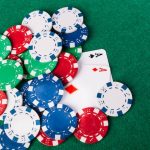As long as casinos thrive as temples of chance and entertainment, these icons will continue to capture the essence of human interaction with the unknown, offering us a glimpse into the intricate threads that weave the fabric of our desires and uncertainties.” Gambling has been a part of human culture for centuries, offering a mix of excitement, risk, and potential reward. At the heart of every gambling endeavor lies probability—the mathematical concept that underpins every bet placed and every game played. Understanding probability is essential for both players and enthusiasts to make informed decisions and navigate the complex world of gambling. Probability in gambling can be likened to a hidden force that shapes the outcome of every game or wager. It’s the tool that enables players to estimate their chances of winning, which can range from the roll of a dice to the spin of a roulette wheel or the draw of a poker hand.
By delving into the realm of probability, gamblers gain a deeper appreciation for the dynamics of chance and learn to evaluate the risks they’re taking. One of the most straightforward applications of probability in gambling is in games of chance, such as slot machines or roulette. In these games, the probability of a specific outcome is determined by the number of possible favorable outcomes divided by the total number mega888apk of possible outcomes. For instance, in a simple coin toss, the chance of landing heads is 1 in 2, or 50%. Card games like poker and blackjack involve a more complex use of probability. Skilled players learn to calculate the likelihood of drawing certain cards based on the cards they’ve seen and the number of decks in play. This knowledge empowers them to make strategic decisions, like whether to hit or stand in blackjack, to maximize their odds of winning.
However, the relationship between probability and gambling isn’t just about mathematical calculations. It’s about managing risk and making choices based on incomplete information. Players must weigh potential gains against potential losses, factoring in their own risk tolerance and the thrill of uncertainty. From a psychological standpoint, understanding probability can even impact a gambler’s behavior and emotions. Knowing that each outcome is a result of probabilities can help mitigate the allure of chasing losses, promoting responsible gambling habits. In conclusion, probability is the cornerstone of gambling, shaping the landscape of chance and risk in every game of chance. Whether you’re an occasional player or an enthusiastic gambler, appreciating the role of probability in gambling enhances decision-making, encourages responsible play, and ultimately makes the experience more engaging.











